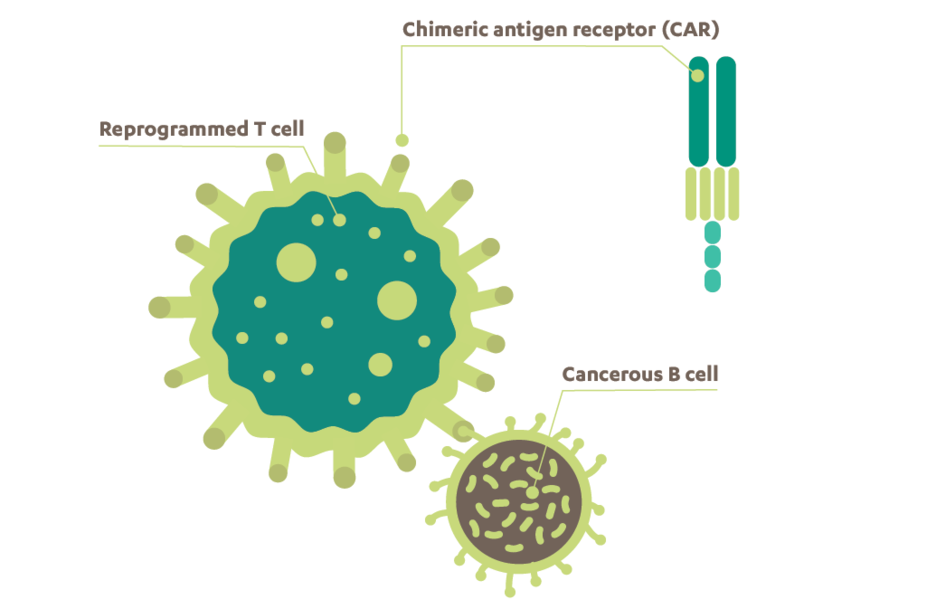Understanding KYMRIAH
What is KYMRIAH and how does it work?
What is KYMRIAH?
Unlike traditional chemotherapy or stem cell transplant, KYMRIAH (tisagenlecleucel) is a type of immunotherapy, called CAR-T cell therapy or chimeric antigen receptor T cell therapy. CAR-T cell therapy harnesses the power of a person's own T cells—which naturally recognize and fight foreign invaders but sometimes need some additional help. KYMRIAH is a single infusion that may allow patients to break free from the cycle of daily oral medications and multiple intravenous infusions.
How does KYMRIAH work?
This image illustrates that KYMRIAH works by harnessing a person's own immune system.
KYMRIAH for Follicular Lymphoma
KYMRIAH is a prescription cancer treatment used in patients with follicular lymphoma (FL), a type of non-Hodgkin lymphoma, that has relapsed (went into remission, then came back) or is refractory (did not go into remission after receiving other lymphoma treatments) after having at least two other kinds of treatment.
There are ongoing studies to confirm the benefit of KYMRIAH in FL.
What makes KYMRIAH different from other therapies?
Unlike traditional chemotherapy or stem cell transplant, KYMRIAH uses the power of your own immune system to fight the cancer. Furthermore, as a single infusion, you may no longer need multiple IV infusions, daily oral medications or indefinite repeated treatment cycles.
KYMRIAH is different from a stem cell transplant (SCT). Speak to your doctor to see if you may be eligible for KYMRIAH. | |
If the cancer has returned and/or hasn’t responded to at least two other treatments, KYMRIAH may be right for you. You do not have to be in remission (where signs of your cancer have disappeared or your cancer is under control) to begin KYMRIAH therapy. | |
KYMRIAH is typically given in a single infusion that may allow you to break free from the cycle of daily oral medications and multiple intravenous infusions. | |
Your doctor may decide to give you a short course of chemotherapy before receiving KYMRIAH. This prepares your body for new CAR-T cells. | |
| KYMRIAH enhances the ability of your T cells to detect and destroy your healthy and cancerous B cells. |
When should KYMRIAH be considered for treatment?
If the FL has returned or has not responded after two or more kinds of treatment, KYMRIAH may be right for you. The first step is to talk to your doctor about KYMRIAH.
Is KYMRIAH right for me?
If the cancer has returned or has not responded after two or more kinds of treatment, KYMRIAH may be right for you. You do not need to be in complete remission to receive KYMRIAH. If you are considering treatment options, talk to your doctor about KYMRIAH.
Topics to discuss with your doctor:
Your treatment history, including if you have had previous stem cell transplants
Your cancer’s response to previous therapies
All current medications, including any supplements or steroids
Other medical conditions you may have
What tests are needed to make sure KYMRIAH is right for you
Our doctor discussion guide can help you prepare to speak with your doctor about KYRMIAH and whether it’s right for you.

Caring for someone with follicular lymphoma
Be prepared to help with doctor discussions. Whether you’re preparing your loved one ahead of time or learning some of his or her medical history for yourself, it’s useful to keep a little notebook with information you think will be important. Visit the Caregiver Resources page to learn more.





